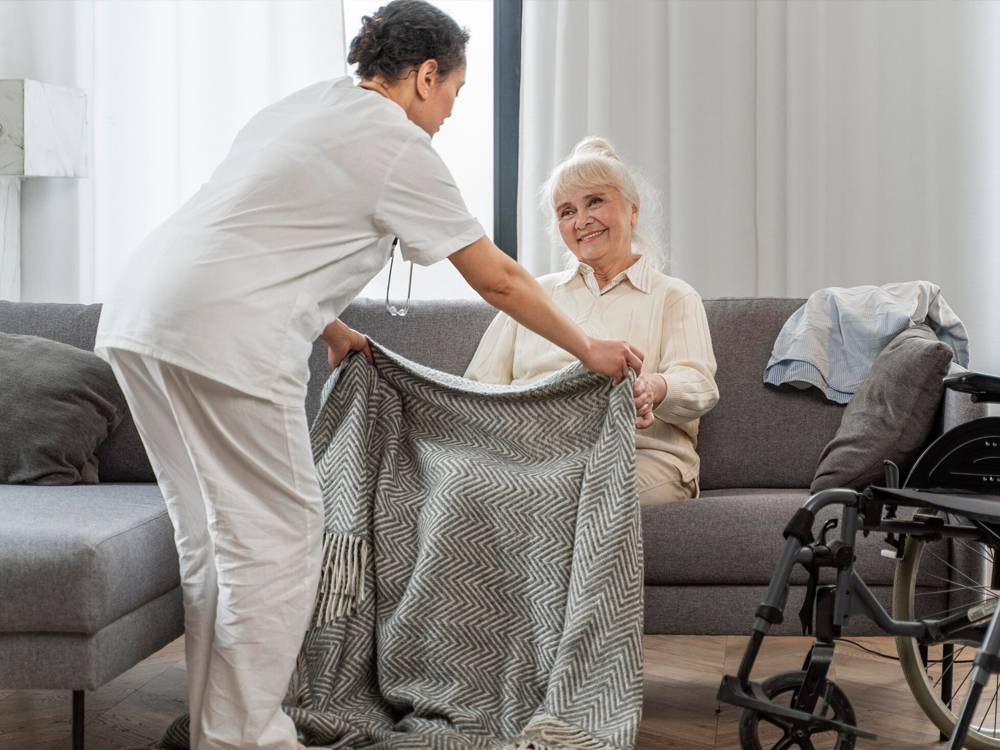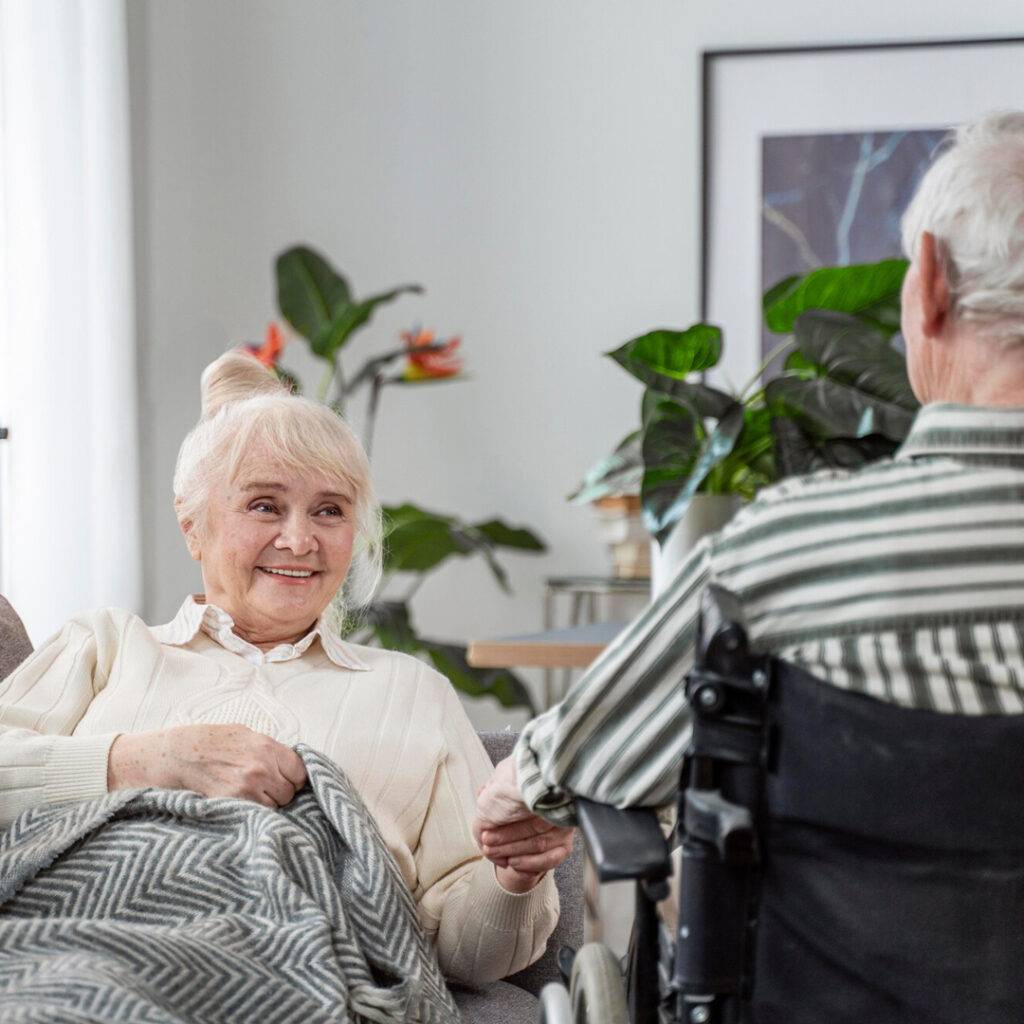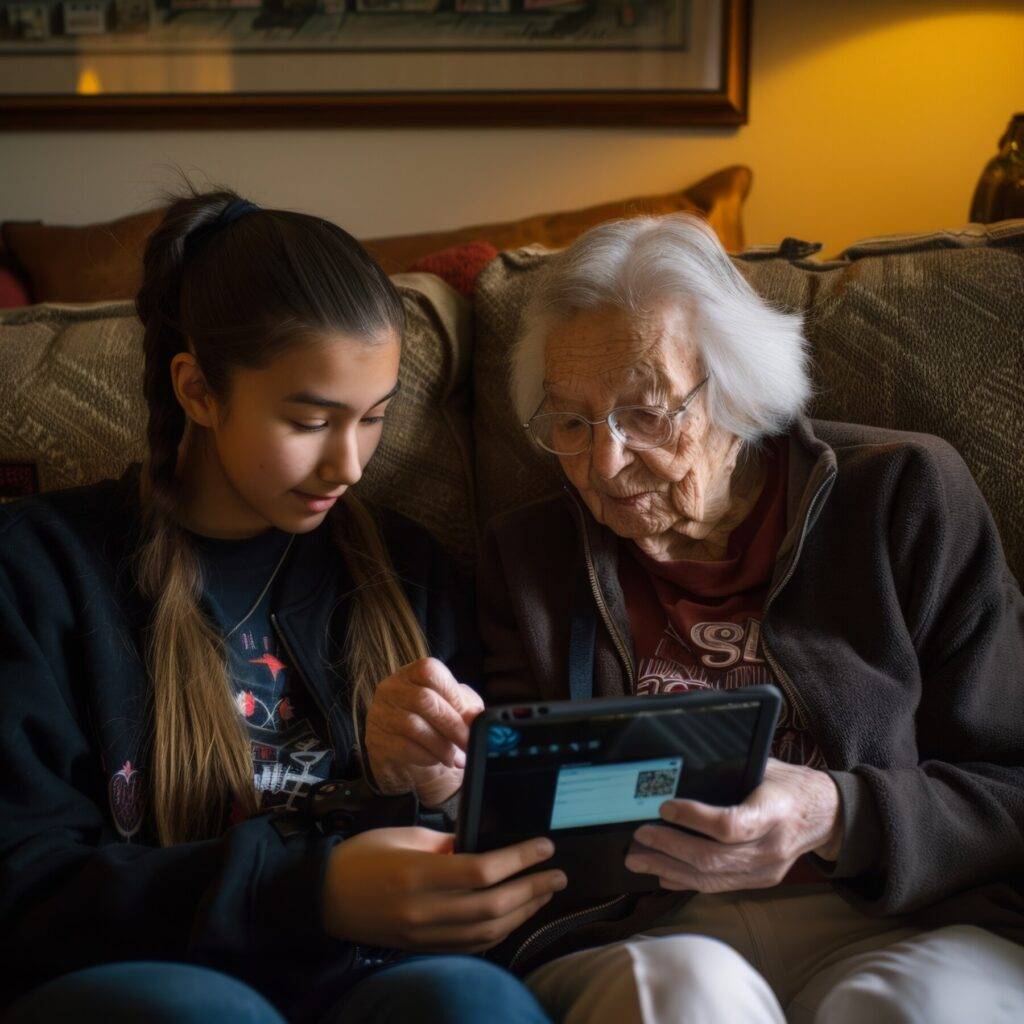Follow us
Later life gives much to embrace and much to consider but it can also be a worrying time, help is at hand whatever your needs
With a variety of options available how do you choose the care which is right for you and yours? Broadly speaking there are three main options: domiciliary, live-in and residential.
Domiciliary care allows you to stay in your own home with visits from a carer. The intensity and frequency of domiciliary care visits will be determined by your needs, it maybe that short-term ‘dom care’ will suffice after a hospital stay for example, but it may be that more regular care is needed albeit for relatively low-level care needs. You may find that just an hour or two a day is sufficient to meet your needs which may include just daily care and essential tasks.
Dom care allows you to maintain easy contact with family and friends and grants a degree of independence where possible.
If your care needs are more acute but you would still like to stay in your own home then live-in care may be suitable. You’ll benefit from one-to-one care from a professional caregiver focussing on your needs and giving you and your loved ones peace of mind. This increasingly popular option is more financially viable than residential care. Some care assistants live in all the time whilst others work on a rota system.
There are a wide number of residential care homes providing comfortable living specifically for elderly care. Many are purpose-built to account for a wide range of circumstances with one of many people’s key deciding factors being the social aspect they offer with the chance to live alongside others on a day-to-day basis and enjoy a variety of activities.
Residential care is designed for those needing round the clock care and can also provide practical, emotional and personal support. Residents can keep their independence but also enjoy help with tasks such as bathing and house keeping.
Whatever your living circumstances in later life, staying in touch with friends and family are essential for your wellbeing. According to the Campaign to End Loneliness, half a million older people go at least five or six days a week without seeing or speaking to anyone. Technology can help connect people and provide access to essential services online.
Two devices are tailor made for seniors. GrandPad is an eight-inch tablet which has a touch sensitive screen and includes simple one-touch buttons to access video chats. Families can create a secure social network that only includes approved contacts who can communicate with the GrandPad and share photos and emails. They can also be customised to suit the user’s needs.
KOMP is a one-button computer designed by No Isolation specifically for video chats with loved ones. Looking like an old-style TV with a large screen it has just one button.
KOMP is a receiving device and loved ones will need to download an app to start a video conversation.
The Amazon Echo Show also allows video calls. The latest version includes an interactive screen that rotates with you as you move or interact with it.
There are many kinds of smart devices that can make a big difference to quality of life and help keep you connected with essential services and loved ones.
Smart heating controls can help ensure the home isn’t being heated when it needn’t be and will help save money. Most devices can be fitted to a boiler or heating system and linked to an app. Smart lighting and plug controls can also be activated automatically. Voice activated devices can also help control heating and lighting and can be set up with a ‘trigger word’. Most devices can also make voice phone calls with just a command, vital in an emergency or if not near a phone. Camera doorbells are also worth considering for added peace of mind, especially if you live alone.
How to spot and prevent scams
It’s a sad fact of life that as you age you are often more susceptible to cruel scams and ruthless fraudsters trying to trick you out of your money. It’s perfectly normal to feel worried about these scams but there is plenty of advice to help you spot and avoid scams.
On average, four people aged 50+ are scammed in England and Wales every minute. Age UK has embarked on the Scams Prevention and Support Programme with the aim of helping older people be more aware and to help avoid them.
There are various methods of being scammed to be aware of: Phone scams and cold calls, postal scams, doorstep scams, email scams, investment scams and pension scams.
In all cases, the old adage “if it sounds too good to be true, it probably is” should be paramount. Being scammed can be very distressing, and the impact is often emotional as well as financial. There is support available.
Call the police on 101 if it’s not an emergency or 999 if you feel threatened. If you notice any unusual activity on your bank account get in touch as soon as possible, you’ll find a contact number for your bank on the back of your card.
There are various other support services out there too – Action Fraud: Action Fraud or call on 0300 123 2040. Victim Support provides 24/7 free and confidential support to victims and witnesses of crime. Find out more at Victim Support or call 08 08 16 89 11.
Contact Citizens Advice for information and advice about how to avoid scams and fraud. Their consumer services also provide information and advice on consumer issues by telephone and online, Citizens Advice.
Latest articles




















